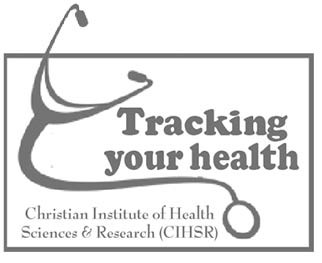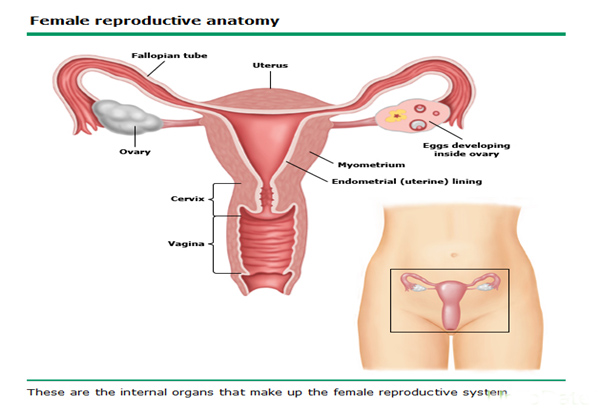
INTRODUCTION
Dysfunctional uterine bleeding is also called abnormal uterine bleeding. It's a condition in which the bleeding is abnormal and occurs at unexpected times of the month. The bleeding may be heavier or lighter than normal.This happens because of changes in the hormones that help control a woman’s menstrual cycle each month.
The inside of the uterus (womb)has two layers. The thin inner layer is called the endometrium. The thick outer muscular wall is the myometrium (myo= muscle) (figure).

Abnormal uterine bleeding can be caused by many different conditions. This topic discusses the possible causes of abnormal bleeding, how it is evaluated, and treatments that may be recommended.
Some frequently asked questions on abnormal uterine bleeding.
What is a normal menstrual cycle?
The normal length of the menstrual cycle is typically between 24 days and 38 days. A normal menstrual period generally lasts up to 7 days.
What is abnormal uterine bleeding (AUB)?
Bleeding in any of the following situations is considered abnormal uterine bleeding:
• Bleeding or spotting between periods
• Bleeding or spotting after sex
• Heavy bleeding during your period
• Menstrual cycles that are longer than 35 days or shorter than 21 days
• “Irregular” periods in which cycle length varies by more than 7–9 days
• Bleeding after menopause
What are the causes of abnormal uterine bleeding?
There are many causes of abnormal bleeding, including:
• Structural abnormalities in the uterus, including:
o Fibroids (non-cancerous growths of muscle in the uterus)
o Polyps (non-cancerous growths on the lining of the uterus and cervix)
o Uterine adenomyosis, (is a condition in which the lining of the uterus i,e endometrium grows into the myometrium)
• Blood thinners for anticoagulation (medications that reduce the risk of blood clots)
• Bleeding disorders
• Early pregnancy/ Miscarriage
• Problems linked to some birth control methods, such as an intrauterine device e.g.: copper T or birth control pills
• Uterine cancer
• Cervical cancer
• Problems with ovulation /Hormonal changes
Your health care provider may start by checking for problems most common in your age group. Some of them are not serious and are easy to treat. Others can be more serious. All should be checked.
How common is abnormal uterine bleeding?
It is a common diagnosis, making up 5-10% of cases in the outpatient clinic setting.
Which age groups have the highest prevalence of abnormal uterine bleeding?
Adolescents and Peri menopausal women are particularly vulnerable. About 20% of affected individuals are in the adolescent age group, and 50% of affected individuals are aged 40-50 years.
What is the morbidity associated with abnormal uterine bleeding (AUB)?
Single episodes of bleeding generally carry a good prognosis.
• Iron deficiency anemia: Patients who experience repetitive episodes might experience significant consequences increasing the risk for iron deficiency anemia, requiring blood transfusion
• Infertility (not able to conceive) because of chronic an ovulation (Failure of the ovary to ovulate regularly).
• Many individuals with abnormal uterine bleeding are exposed to unnecessary surgical intervention, such as repeated uterine curettage or hysterectomy.
• Endometrial adenocarcinoma: About 1-2% of women with improperly managed bleeding eventually might develop endometrial cancer.
• Timely and appropriate management will prevent most of these problems.
How is abnormal uterine bleeding diagnosed?
Your healthcare provider will ask you several questions when working to diagnose abnormal uterine bleeding. These questions may include:
• Health history and your menstrual cycle. It may be helpful to keep track of your menstrual cycle before your visit. Note the dates, length, and type (light, medium, heavy, or spotting) of your bleeding on a calendar. You also can use a smartphone app designed to track menstrual cycles.
• What other symptoms are you experiencing?
• Are you pregnant?
Your healthcare provider will then do a physical examination, including:
• A pelvic examination
• A PAP smear
What tests will my healthcare provider order?
Your healthcare provider will order several tests when diagnosing abnormal uterine bleeding. These tests may include:
• A pregnancy test if you are not in menopause.
• Complete blood count.
• Coagulation studies/factors
• A thyroid test
• Hormone levels.
• Ultrasound
• A biopsy of the endometrium.
• Hysteroscopy -A thin, lighted scope is inserted through the vagina and the opening of the cervix, to see the inside of the uterus.
How abnormal uterine bleeding is treated?
Treatment of abnormal uterine bleeding will depend on the cause of the bleeding. Some treatments may include:
• Hormones
• Birth control pills
• Nonsteroidal anti-inflammatory drugs (NSAIDs), such as ibuprofen
• Tranexamic acid. This helps your blood to clot.
• Iron supplements, if you have anemia
• Special medications—If you have a bleeding disorder, your treatment may include medication to help your blood clot.
General care/Home care
• Get plenty of rest if you tire easily. Don't do strenuous exercise.
• To help ease pain or cramping that may occur with bleeding; try using a heating pad on the lower belly or back. A warm bath may also help.
What surgical options are available for women with abnormal uterine bleeding?
• There are several surgical options used to treat the causes of abnormal uterine bleeding. Your healthcare provider will advise you on the best option based on your condition.
• If the cause of your abnormal uterine bleeding is a structural issue, such as a fibroid or polyp, surgery may be needed.
• Surgery to destroy the lining of the uterus, called uterine ablation, may be an option for some women. Uterine ablation is not recommended for women who may want to have more children in the future. With this, the lining of the uterus is destroyed through the use of a laser, heat, electricity, microwave energy or freezing.
• Taking out the uterus (hysterectomy) may be tried as a last resort. This may be done when hormone treatment fails to control heavy bleeding.
• Cancer or cancerous changes in the endometrium and cervix are often treated with hysterectomy.The treatment depends on the stage of the cancer. Hysterectomy is often used to treat early stages. More advanced stages may need radiation or chemotherapy.
When should you see a doctor?
Call your healthcare provider right away if:
• Bleeding becomes heavy (soaking 1 pad or tampon every hour for 3 hours)
• If you don't have a monthly period or have more than one period per month.
• Irregular bleeding gets worse or does not get better even with treatment
• Signs of anemia, such as pale skin, extreme fatigue or weakness, or shortness of breath
• Dizziness or fainting
Can abnormal uterine bleeding be prevented or avoided?
If your abnormal uterine bleeding is caused by hormonal changes, you will not be able to prevent it. But if your hormonal changes are caused by being overweight, losing weight could help. Your weight affects your hormone production. Maintaining a healthy weight can help prevent abnormal uterine bleeding
How frequently do women with abnormal uterine bleeding (AUB) develop endometrial cancer?
About 1-2% of women with improperly managed anovulatory bleeding eventually may develop endometrial cancer.
What is the role of PAP smear in the workup of abnormal uterine bleeding (AUB)?
Cervical cancer is the most common gynaecologic cancer affecting women of reproductive age in India hence PAP smear should be done.
Dr. Z Kanili. Jimo
CONSULTANT
MD (Obstetrics&Gynaecology)
Department of Obstetrics & Gynaecology
CIHSR
Reference:
1.Uptodate.com





